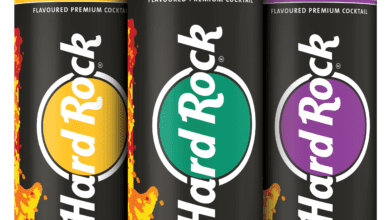How small retailers can differentiate their business online

With so many UK consumers discovering small businesses online, there’s simply no reason not to have a digital presence. A recent study we carried out into consumer expectations of small business supports this. The research reveals that nearly two thirds (58%) of UK consumers expect small companies to have a website – a figure that rises to 80% amongst millennial shoppers.
But there’s good news for the retail sector, as it has some of the most digitally savvy small businesses in the UK. The same study shows that 62% of small retailers have a website, while over two-thirds (68%) are on social media. While there’s still work to be done in helping retailers bridge the digital gap, these figures compare very favourably with other sectors. Across all industries we surveyed, less than half (43%) of small businesses have a website, and just over half (53%) are on social.
It’s encouraging to see that small UK retailers are leading the way in digital capability, but in this hyper competitive space, it’s not enough to simply have an online presence – especially when a lot of your competitors already do. Nearly two-thirds (63%) of the small retail owners we surveyed say that they struggle to compete with larger competitors, citing insufficient budget, lack of knowledge and lack of resources as the top barriers to building a professional online presence.
Although there are barriers to online marketing, we’ve seen that even with limited resources, small retail businesses can stand out online. We’ve pulled together four practical tips on how you can differentiate your small retail business online:
Make it personal
One of the top reasons why UK consumers prefer shopping with small retailers over larger businesses is because it feels more personal to them. You can leverage this benefit by ensuring that your online marketing is hyper targeted to your audience.
Firstly, you need a clear picture in your mind of who you’re speaking to. Start by observing your customers. See what types of customers come into your shop and take note of who already follows you on social media. Facebook provides detailed behavioral and demographic insights about your audience, which you can draw on to create personas.
A typical customer persona for an independent retailer selling natural beauty products may look something like this:
Claire is 26 and works as a marketing executive for a startup in London. She leads a busy lifestyle during the week, with long days at the office, networking and catching up with friends in the evenings, and squeezing in exercise classes. She’s health conscious and is always looking for ways to improve her wellbeing while leading a hectic lifestyle. Her favourite social network is Instagram, and she uses it primarily to follow her friends and health/wellness accounts.
Having one or two personas in mind will help you create content on your website and social media channels tailored to the lifestyle, behavioral traits and social media usage of your customer. For Claire, that could include a blog covering various topics related to health, wellbeing and beauty, social posts such as a beauty tip of the day and YouTube videos and/or Instagram stories showcasing a customer’s skincare routine.
Capitalise on community
Once you’re clear on who your customers are, you need to determine what content you’re going to create to attract them. Information about your products and any sales/promotions you’re running is important, but that alone won’t make you stand out.
As a small retailer, your opportunity to differentiate yourself online could be through promoting your community involvement. Our survey reveals that supporting the local economy is the main reason why UK consumers shop at small retailers, so they’ll be interested in the broader benefits your retail business brings to their community.
One way of increasing goodwill locally is through fundraising. Partner with a local charity that is dedicated to a cause you are personally passionate about and/or aligns well with your business. To pledge your support, you could donate a portion of your sales on the day of the fundraiser, sponsor the event or donate products for a raffle.
Make your involvement clear by talking about your support on your website and social media. You could setup a page on your website where you provide details of local charity initiatives, and create social posts encouraging your audience to take part in fundraisers. This will help customers associate your business with wider community outreach.
Delight your customers
Some of the best marketing comes from satisfied customers who share their experiences with their circle of online friends. Why not leverage these interactions to their full potential to drive online word of mouth? One cost effective way to get started is by creating a Facebook group for loyal customers.
You can offer members of the group benefits such as member-only deals, exclusive product launches, private in-store events and loyalty programs that reward customers for repeat purchases. By going the extra mile to delight your customers, they will likely become advocates for your shop by posting about their experiences with your products on social media. This user generated-content is valuable for reposting on your own social channels or featuring on your website.
Manage your reputation
Personal service is a key selling point for small retailers, so you need to replicate this experience online via one-to-one interactions with your customers.
Closely monitor conversations on social media and review sites and respond to positive and negative feedback in a customer-centric way. You should also join any town or interest-specific Facebook groups and use them to introduce yourself and your business.
Don’t be afraid to put yourself in the driving seat and actively solicit reviews from those that endorse your business. As you encounter customers who have had a positive experience, encourage them to post a review on Google, Yelp and Facebook, or ask if they’re happy to provide a testimonial for your website. Reviews will help to validate what you already know about your business, but even more helpfully, they can also reveal areas for improvement.
There’s a good chance you’ve taken the important first step of getting online. By harnessing the unique qualities that customers love about small retailers, you can build a professional online presence that sets you apart from larger competitors.
Alfredo Ramos, senior director of digital products, Vistaprint









